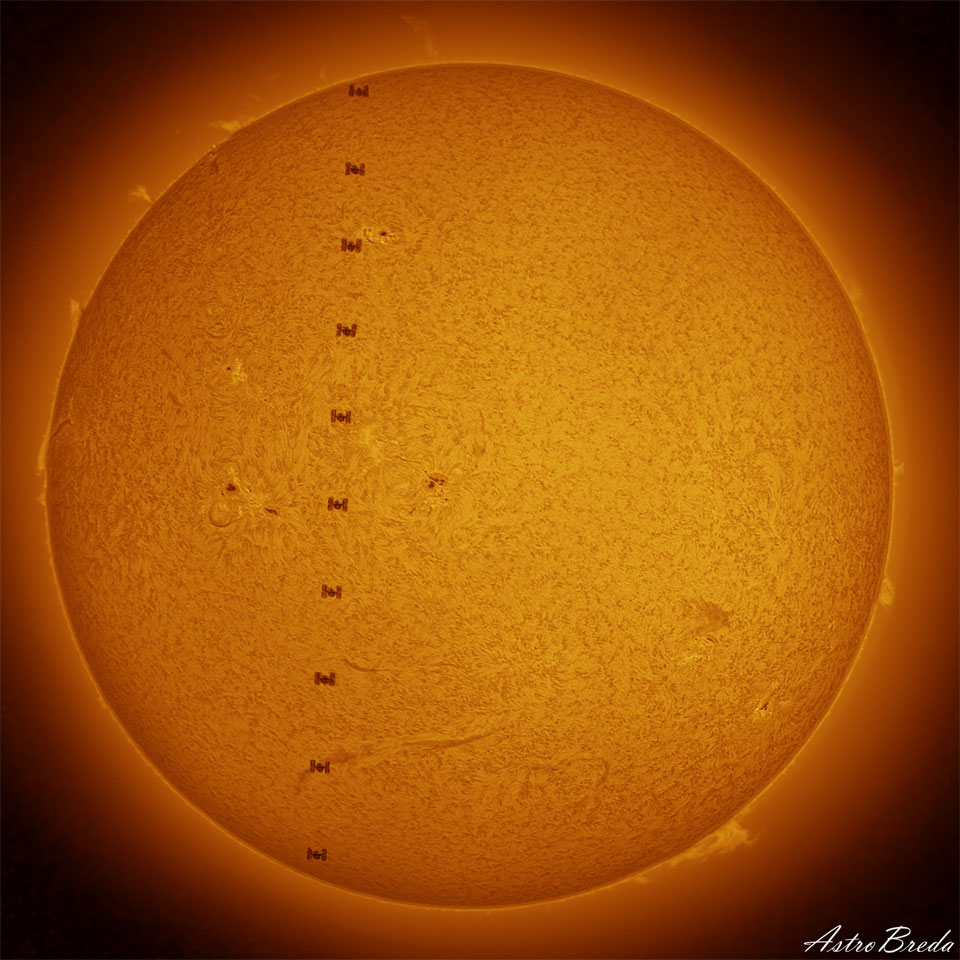Uranus was discovered by Sir William Herschel on 13th March 1781.
Mistaken for a Star
Uranus had been observed on many occasions before its recognition as a planet, but it was generally mistaken for a star. Possibly the earliest known observation was by Hipparchos, who in 128 BC might have recorded it as a star for his star catalogue.
The earliest definite sighting was in 1690, when John Flamsteed observed it at least six times, cataloguing it as ‘34 Tauri’. The French astronomer Pierre Charles Le Monnier observed Uranus at least twelve times between 1750 and 1769, including on four consecutive nights.
The Discovery
Sir William Herschel observed Uranus on 13 March 1781 from the garden of his house in England (now the Herschel Museum of Astronomy), using a telescope of his own design and initially reported it (on 26 April 1781) as a comet.
When he presented his discovery to the Royal Society, he continued to assert that he had found a comet, but also implicitly compared it to a planet.
Although Herschel described his new object as a comet, other astronomers had already begun to suspect otherwise. Finnish-Swedish astronomer Anders Johan Lexell, working in Russia, was the first to compute the orbit of the new object. Its nearly circular orbit led him to a conclusion that it was a planet rather than a comet.
Bode concluded that its near-circular orbit was more like a planet than a comet.
The object was soon universally accepted as a new planet. By 1783, Herschel acknowledged this to Royal Society: “By the observation of the most eminent Astronomers in Europe it appears that the new star, which I had the honour of pointing out to them in March 1781, is a Primary Planet of our Solar System.“
Consensus on the name was not reached until almost 70 years after the planet’s discovery. The planet was called as ‘Georgium Sidus (George’s Star)’ till such time, as suggested by Sir William Herschel, in honour of his patron, King George III. Almost after 1883, the planet was named as Uranus, with references the ancient Greek deity of the sky Uranus, the father of Cronus (Saturn) and grandfather of Zeus (Jupiter).
That is how Uranus was universally accepted as a planet of the solar system with its name.
Here’s a video about Uranus by NatGeo for more info on the planet:






